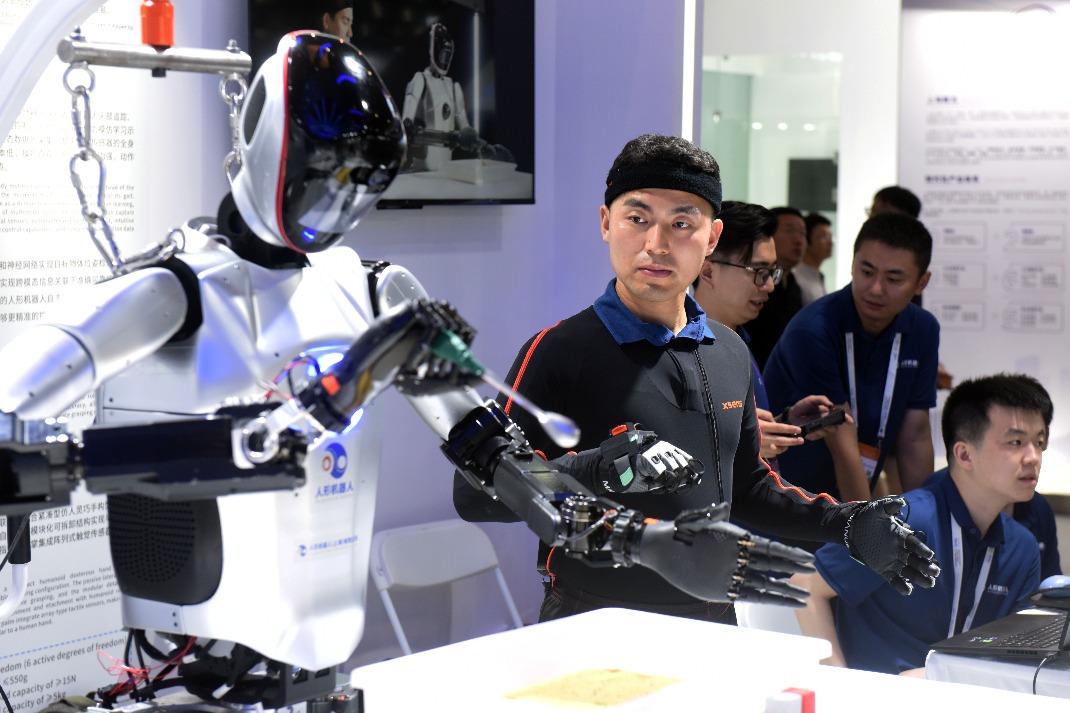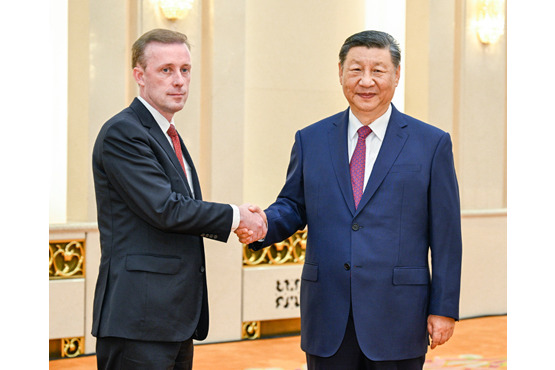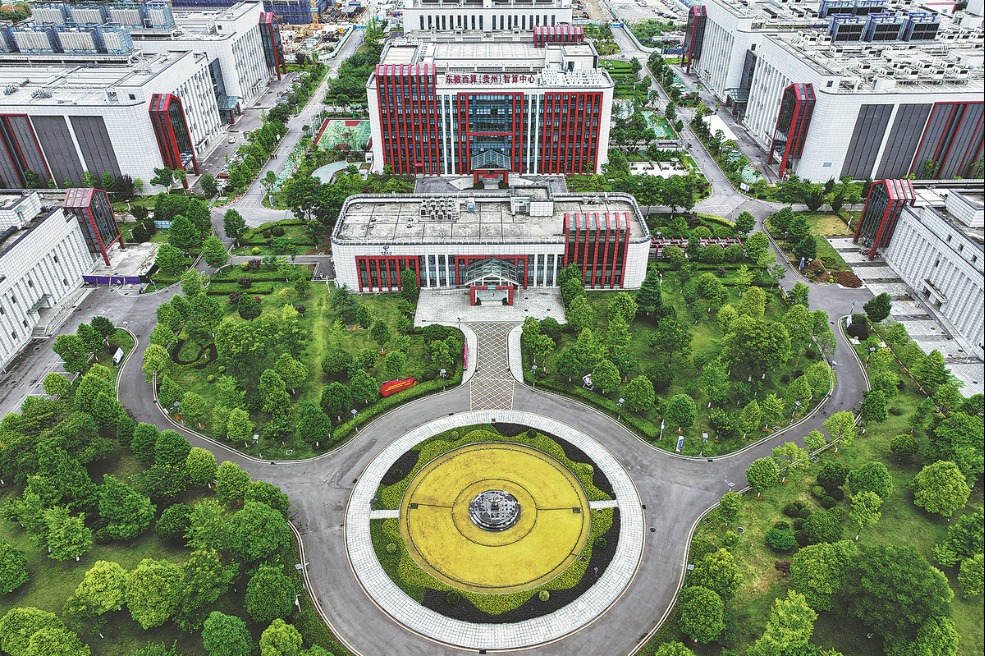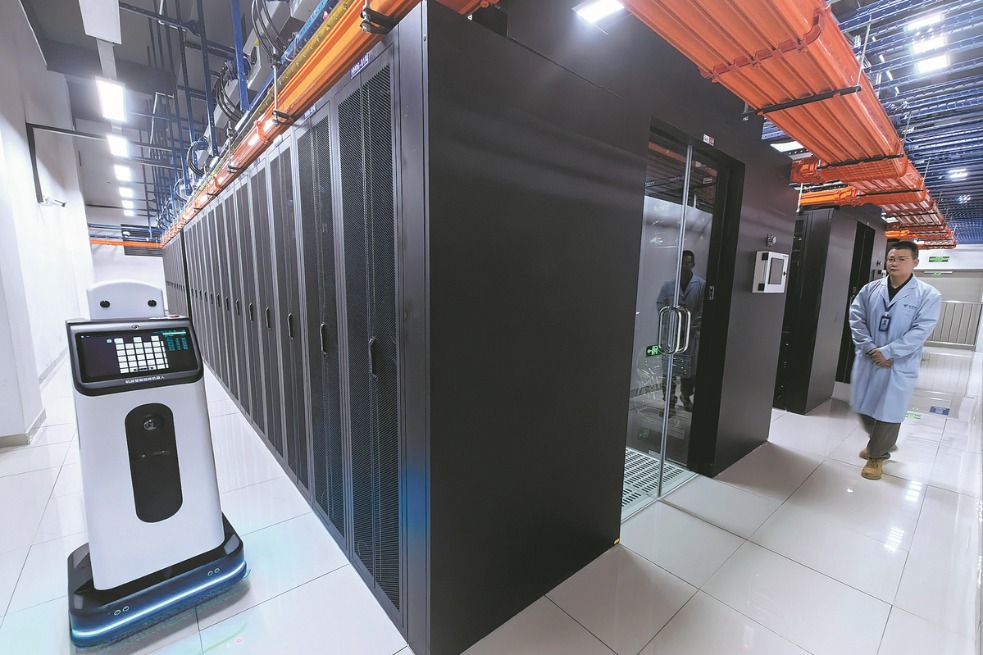Inner Mongolia goes the whole hog on agritech






Amid the global biotech innovation drive, the Inner Mongolia autonomous region is advancing its transition from a major livestock venue to a leading industrial powerhouse through technological innovation and industrial upgrades.
As a key national producer of agricultural and livestock products, the high-quality development of Inner Mongolia's animal husbandry is inseparable from strong support for animal disease prevention and control, said Bao Xianhua, vice-chairman of Inner Mongolia.
"Inner Mongolia is a crucial base for the production of veterinary drugs in China. The region is blessed with abundant carbon sink and green power resources, rich starch supplies and a highly integrated animal vaccine supply chain," Bao said, adding that these advantages are pivotal as the region intensifies its focus on biotechnology to address the challenges facing the animal husbandry sector.
Animal epidemics remain the greatest threat to the livestock industry, with annual losses due to livestock deaths and miscarriages amounting to about 15 billion yuan ($2.1 billion) in the autonomous region.
With improved disease prevention capabilities, if the mortality and miscarriage rates were reduced by 50 percent, the sector in Inner Mongolia could see an enhancement in quality and efficiency worth around 7.5 billion yuan, local government data said.
According to global consultancy McKinsey, biotechnology innovations could generate an annual global economic growth of $2 trillion to $4 trillion over the next 10 to 20 years, with Inner Mongolia poised to seize the trend.
For example, Hohhot-based Jinyu Bio-Technology Co Ltd has partnered with several renowned universities and companies specializing in mRNA research and raw material supply. Together, they have invested 250 million yuan to establish the world's first animal mRNA vaccine production line, with an annual production capacity of 1 billion doses.
Jinyu Chairman Zhang Chongyu said that as the livestock and animal health sectors are currently in need of further development, "every company is exploring how to make breakthroughs with technology to overcome the current challenges."
Over the past five years, Jinyu has invested an average of 200 million yuan annually in animal vaccine research and development, totaling 1.06 billion yuan. The company has also established an artificial intelligence-driven digital platform for vaccine and drug innovation, using computational models to guide R&D and design, Zhang said.
However, challenges still remain in the animal vaccine sector.
"Significant difficulties lie in developing vaccines for certain critical diseases, such as African swine fever and rabies, where technological barriers are high and cutting-edge technologies have an important role to play," said Li Jie, R&D director at Jinyu.
Li added that there is also a pressing need to reduce costs and ensure economic viability while preventing and controlling diseases, which poses new demands on process control and cost optimization.
"Promoting the use of effective and quality assured vaccines remains elusive for many countries, especially low and lower-middle income countries," said Thanawat Tiensin, director of the animal production and health division at the Food and Agriculture Organization of the United Nations.
There is therefore an opportunity to both scale up the use of currently available vaccines and contribute to the innovation of the development of new vaccines against the most pressing animal diseases, Tiensin said.
Eyeing the innovation gap, Jinyu plans to leverage a biopharmaceutical innovation fund of 4.25 billion yuan over the next five years to drive projects worth hundreds of billions of yuan in the biopharmaceutical sector, the company said.
"In an era of great change, no company can afford to stand still," Zhang said. "Adaptation, quick response and proactive change are the inevitable choices for businesses today."
Wu Peizhi contributed to this story.


































